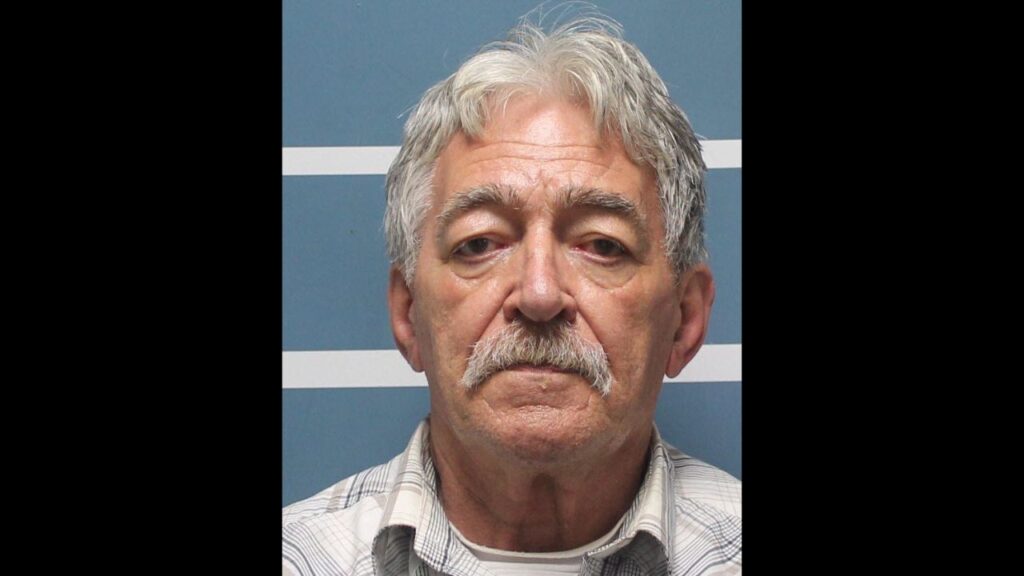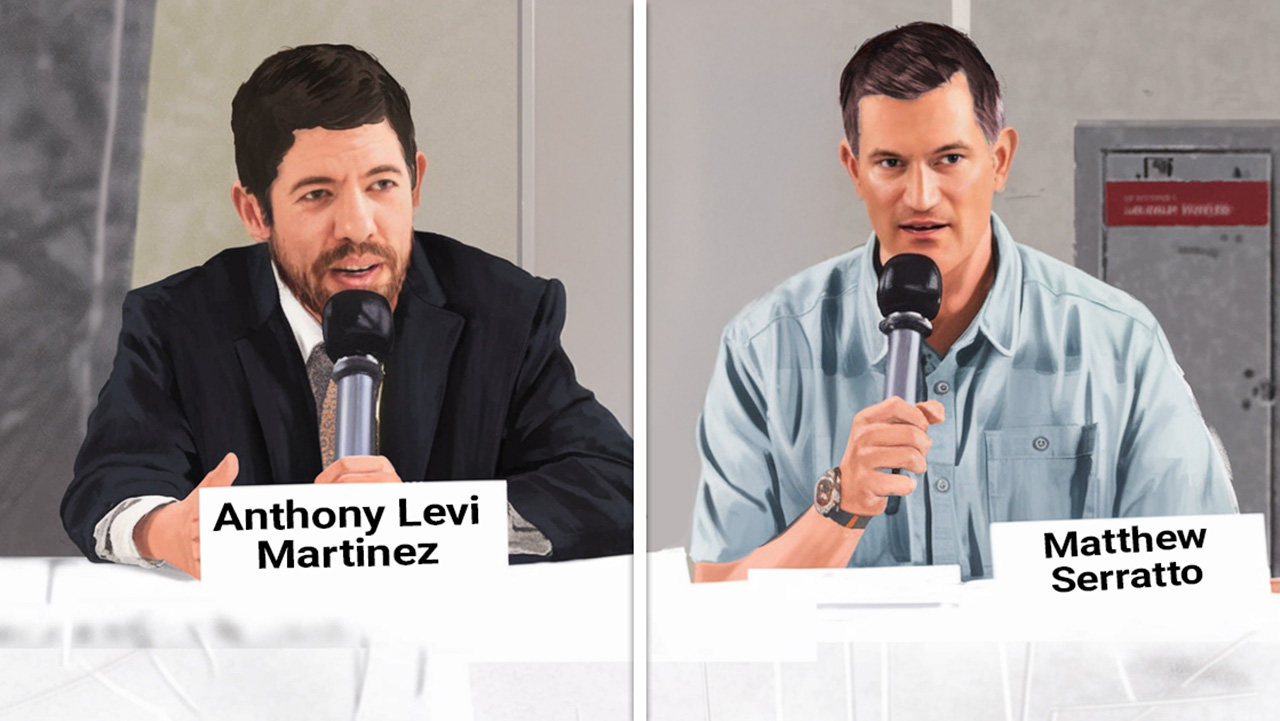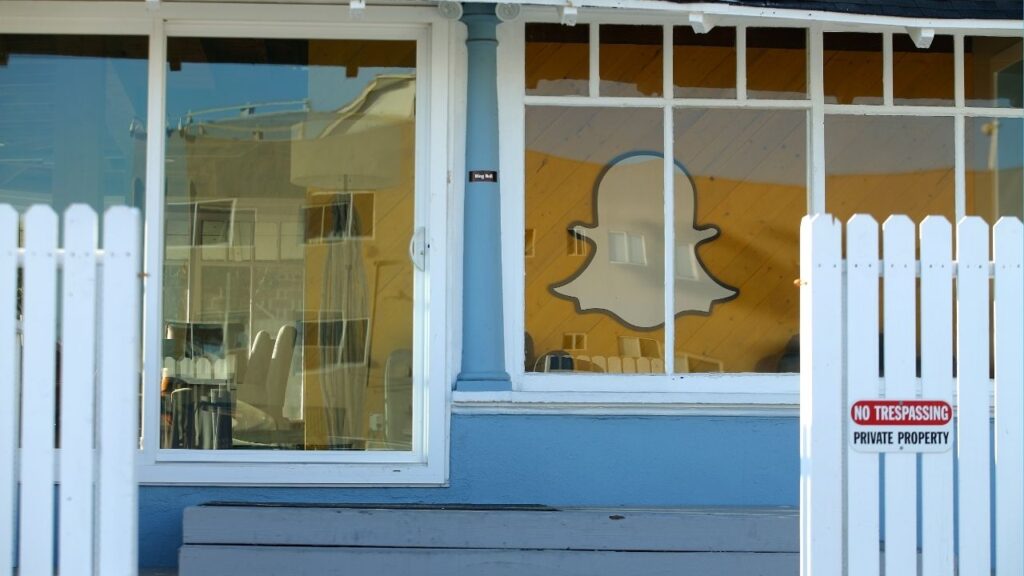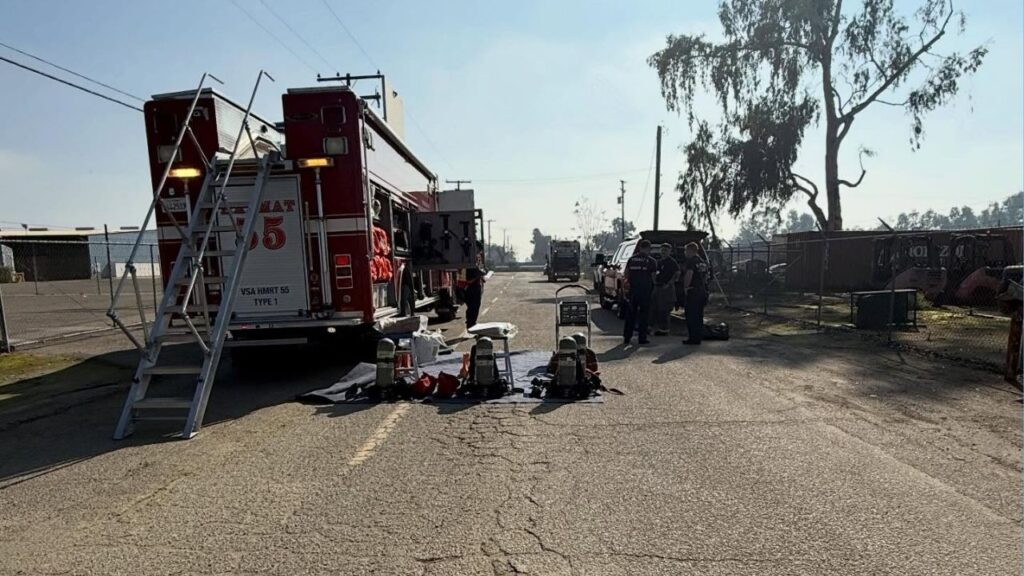Merced's mayoral race heats up as incumbent Matthew Serratto (right) faces challenger Anthony Martinez (left), focusing on housing, homelessness, and accessibility. (GV Wire Illustration/David Rodriguez)

- Serratto touts accomplishments and dedication, while Martinez emphasizes need for change and community unity.
- Both candidates propose strategies to address Merced's housing affordability crisis and combat homelessness.
- Martinez and Serratto served on the City Council 2016-2020. Serratto defeated him and two others for mayor four years ago.
Share
|
Getting your Trinity Audio player ready...
|
Merced Mayor Matthew Serratto is running for re-election and faces one challenger, former City Councilmember Anthony Levi Martinez.

Brianna Vaccari
The Merced FOCUS
Serratto, 44, works as a prosecutor for Stanislaus County. Martinez, 38, is a teacher at El Capitan High School.
Every voter in the city of Merced will see the mayor’s race on their ballot. The winner must secure a majority of votes to win.
The Merced mayor serves a four-year term and can serve a maximum of two consecutive terms. The mayor runs city council meetings and votes with the six-member council.
Related Story: Democrat Esmeralda Soria to Debate Republican Joanna Garcia Rose in ...
Martinez and Serratto both served on the Merced City Council from 2016-2020. Once former Mayor Mike Murphy termed out, both Martinez and Serratto ran for mayor in 2020. Serratto won the race with 52% of votes. Martinez earned 14% of votes and finished third out of four candidates.
Here is how they answered questions from The Merced FOCUS about key city issues:
Anthony Martinez: I was born and raised in Merced, and I’ve always felt in my heart that I am supposed to do something to help change this city for the better. This is why I left Merced to go to college in LA, got my education, and came back to help my community. Now that I am more mature, wiser, and have a greater understanding of what it takes to bring people together, I believe I am finally ready to help bring the change that Merced has needed for a long time.
I’m motivated to run by the things I see in my city. I see small business owners struggling to make ends meet while continuously investing in their businesses, only to watch them be attacked by vandals, thieves and people on drugs. I see boarded-up buildings with homeless people picking through the lots until things catch on fire, all while the city sits idly by. I see members of the community pleading with City Council to help fix our parks, help clean up our town, and help make things safer. Yet, nothing ever seems to get better.
Well, I believe enough is enough. I think we have the power to come together and overcome these issues if we can unite our community, and I believe I know how to bring the community together under the vision of a new Merced. I feel it in my heart that I can help this place evolve, that it is my purpose to help this place evolve, and this is what truly motivates me to run.
Matthew Serratto: I have served as the mayor of the city of Merced over the past four years after previously having spent four years as a city councilmember. It has been the privilege of a lifetime. I love our city and dedicate myself completely to it.
Public service is tremendous work — the responsibility is enormous, but I believe we have accomplished an extraordinary amount in spite of some tremendous challenges. I look forward to seeing pending projects to their conclusion and look forward to continuing to move our city forward.
Matthew Serratto: While housing affordability has been a top concern for our community, Merced is still relatively affordable compared to other San Joaquin Valley and California cities. The affordability crisis is a state and national issue.
What we have done and will continue to do:
- Aggressively increase our housing stock, with steady construction of single family homes and apartment complexes.
- Promote density, allowing for more units to be constructed.
- Streamline approval processes. Our recent ADU/duplex/triplex program won regional planning awards.
- Subsidize affordable housing projects. We have helped fund the following projects, some completed, most in progress: 119 units at Childs Ave. and B St.; 156 units at Devonwood; 108 units at Yosemite and Parsons; 58 units at 19th and I streets; 95 units at 1213 V St.; 58 units at 13th and G streets; along with others.
Anthony Martinez: I think our city needs greater competition among developers in order to make homes more affordable. I believe there are only a few developers with large amounts of acreage to build in this area, but if there isn’t adequate competition to force developers to build faster and cheaper, then things won’t get more affordable. We need to change the way people see Merced so other developers are willing to make million-dollar investments in this town by developing all sorts of different types of homes.
It is very important to seek out grants and state/federal funding when it comes to building affordable housing, but it is also equally important to bring more opportunity to this area for Mercedians so they can afford the rising cost of home ownership.
The bottom line when it comes to affording a home is that a local government cannot control the price of homes through policy when inflation takes over. Therefore, if we want to make homes more affordable for Mercedians, we need to put more money in the hands of Mercedians, and we need to increase developer competition so companies are motivated to offer houses for cheaper knowing that if they don’t, the competition will.

Anthony Martinez: I think that looking at the city of Merced’s homelessness numbers in a vacuum is a fallacy and a misleading characterization of the status of homelessness.
If homelessness gets slightly better in the city of Merced, but worse county-wide, the problem didn’t get any better. It simply wasn’t accounted for accurately because someone was not counted as homeless in Merced because they were standing on the other side of an invisible line. Homelessness affects the entire county, and since most of our services and resources are brought in by the county, it’s much more important to consider the entire area’s numbers rather than just the city’s in a snapshot.
It may sound nice to say it’s getting better, but who really feels that’s the case? How is it getting better if buildings are catching fire, vandalism is spread across town, and people on drugs continue to wander about the streets?
I think the homeless situation can improve if we bring order and enforcement to certain areas like downtown and our parks, so people can feel safe to enjoy themselves. I also believe there are a lot of people gaming the system, and we don’t know who they are. I appreciate all the services we have to offer, and the pursuit of more resources for the homeless, but I also think the city needs to keep many of these services in house rather than contract them out to others so we can monitor and track who is really using the services correctly, and who’s trying to work the system. I believe for every person gaming the system, there’s a person on the streets who wants help but cannot get it because resources are all filled up. But, if we can identify who wants help and who’s working the system, we can be more helpful and efficient to those that really need the help. I also believe we bring resources to town for the homeless, but we don’t take mitigations to alleviate the natural acceleration of criminal activity that is likely to occur.
For example, if we create a program to put people in a redesigned hotel, but we don’t do anything else to the area, like increased lighting or increased police presence, what stops the area from descending over time? I would make sure that when we set up things like this in our town, we also have increased presence of law enforcement, increased camera surveillance, and/or increased lighting.
Related Story: Measure R: What to Know About Merced County’s Sales Tax Ballot Measure ...
Long term: I think we need to do more to bring more opportunity to this town so people can get a job and support a family without feeling the hopelessness that leads to things like drug addiction. I think there’s more we can do to fight the prevalence of drugs in our town such as youth outreach and increasing recovery services for our residents. I believe educating our residents at a young age about what makes people homeless in Merced is very important in teaching the upcoming generation how to avoid ending up on the streets. This is what I mean by youth outreach. An example of this could be working with school districts to create something like “Homeless Education Week” where our schools could have assemblies or take field trips to places where students would learn about what can make you homeless in Merced, how common it is to slip into drug addiction, and how difficult it can be to get a job, especially once you have a criminal record. City and county officials could visit classrooms and inform kids about how easy it is to be homeless when you don’t have a plan for your future. This would emphasize to our youth that there are things they need to be doing right now with their lives in order to prevent them from ending up on the streets. If we educate the next generation, we give them a better chance to combat the problem when they become ready to take over for us.
Matthew Serratto:
- Enhance outreach and enforcement/public space management: Recently we have seen positive developments in homeless outreach, with organizations such as Merced County Community Action Agency and Turning Point upgrading their outreach efforts. We need to ensure adequate police staffing so that our proactive DART team can expand and potentially upgrade to seven days a week activity.
- Expand temporary shelter: Support efforts to expand the Navigation Center. It currently has a 75 bed capacity. By adding bunk beds and additional staff and case workers, it can be increased to up to 150 total beds.
- Continue to support permanent housing and dedicated, obligated homeless units. We have been fortunate to receive three state Homekey grants, with 95 units already in operation and 78 more in the pipeline. Additional projects such as Childs Ave. and B Street (30 units set aside) and Mercy Village (67 units) provide homeless housing.
- Support social services that address homelessness: Many organizations do exceptional work in this area, and they deserve whatever support we can provide.
Matthew Serratto: I am extremely accessible to our citizens. I devote a massive amount of time to constituent communications. It is probably one of the biggest parts of this job, whether it be: speaking with people one on one, speaking to groups, speaking on the phone, speaking to organizations and schools, responding to emails, responding to social media messages, posting on social media, interacting with people on social media, interacting at official city events and being constantly present in the community.
Anthony Martinez: I think it’s important to keep the public informed and gain their trust by listening to the residents and executing the changes they want.
I’ve observed at our town halls that residents come with a problem with three minutes to speak, then each councilmember speaks for an unlimited amount of time about how they understand, about how they’re working on it, or how that’s not really something the city can handle. This isn’t what residents want. Residents want to see that Council listens to the issue, writes down notes, and makes a genuine effort to fix the problem.
This is how I would handle our town halls: More talk from the residents, less talk from Council, and more follow-up with issues resolved.
When it comes to being accessible, I think it’s important for the public to see the mayor informing residents. This is why I want to bring back the State of the City Address, so the mayor can inform residents of what has happened in their city and where their city is going.
Also, I would love to do a podcast, maybe weekly or bimonthly, that goes over what happened at the last council meeting, what’s happening in the city and maybe even interview business owners or citizens that take initiative to make the city better. This would help show the mayor as a friend to the residents and a voice they can trust, which would make the mayor seem more accessible to average residents.
I would also do my best to be at City Hall pretty much every day, so that I am always in the loop on what’s going on with city staff, and I am always accessible to those that want to reach me in person.
I also want to bring back district town halls, so each council member can host a town hall in their own district, so they can hear what specific problems are in their district, and they can learn who the residents are in their areas that are struggling with issues.
My experience on the city council tells me that if leaders aren’t returning calls or acknowledging complaints, it’s most likely because they don’t know what to do about it. However, if we had a unified vision of how we want to handle things like vandalism, homelessness, code enforcement etc., our leaders would feel more comfortable being accessible because they know where we’re going as a city. This is how I would try to make myself and the council more accessible to residents.
Anthony Martinez: One proposal I have is to finish creating a strong industrial park out by Tower Road and Childs Avenue that can make us competitive with other cities in the area when it comes to attracting warehouse jobs, manufacturing plants and emerging tech industries. We have the space and the infrastructure to really make that area a quality industrial park that can bring us well-paying jobs for people with and without a college education.
Another proposal I have is to enter into agreement with Merced College and UC Merced to develop schools of education, law, and medicine. I’m aware that some of these entities are already working on similar things, but I believe that all three of us can enter into agreements that require us all to commit to dedicating a certain amount of resources to this goal overtime. This will ultimately result in new businesses, new neighborhood communities and new schools of higher learning. An example of what this would look like would be the UC committing to creating a school of medicine over the next three years, while Merced College commits to expanding medical classes so students can transfer, while the city commits to creating zoning for student housing and medical facilities and lobbies private industries in the area that can help make our goals into reality. What I am describing may be nuanced and complicated, but I firmly believe that if our city, UC, and community college could work together to bring a school of medicine, law and education to our area, we would see a change in this city like never before because we would be able to create our own workforce of the best paying jobs in town.
Matthew Serratto: Our most recent official Merced County unemployment rate is at 9.1%, below the 11.7% of December 2020 and our historic 12-13% rate, but above our recent low of 6% in September 2022.
Our City of Merced sales tax figures have stayed near record highs over the past four years.
Some key areas of focus:
- Workforce development: Continued partnerships with the county, Merced College, Small Business Development Center at UC Merced, and Merced County Office of Education in particular.
- Shovel-ready industrial park land
- Continued support for the ACE train heavy maintenance facility
- UC Merced and surrounding lands annexation
- Overall quality of life
- Downtown investment and revitalization: Downtown is the prime place for local small business
- Tech jobs: Our partnership with Bay Valley Tech has already yielded great results

While it’s not uncommon to see protests at City Council meetings, typically they are related to local issues. On occasion, however, protesters have asked City Council members to weigh in on national and international issues – including conflicts happening abroad.
Is there a place for protest at City Council meetings – particularly in a university town that invites a wide range of viewpoints? As a council member, what would be your approach when protests erupt in council chambers?
Matthew Serratto: As Mayor, among your many responsibilities, you must:
- Protect freedom of speech
- Ensure that all voices are heard
- Run an efficient council meeting, and
- Preserve order and decorum in the council chambers.
These responsibilities often conflict with one another.
City Council meetings are fundamentally business meetings, where the City Council must conduct the business of the city. But they are also public forums where our citizens exercise their constitutional right to petition local government, the level of government that is closest to and most accessible to them.
All that said, while the public’s right to address and criticize council should be fiercely protected, organized protest during City Council meetings frequently crosses the line. Council meetings are not political rallies. The public must follow protocols established for the benefit of all, and the mayor and council should resist efforts from certain groups to hijack meetings for their own ends.
Anthony Martinez: I think it’s important for residents to be able to make their voices heard. I think the more the UC grows, the more likely it is that people will protest, and as long as the protests are peaceful and orderly, I don’t see any reason why they shouldn’t happen, or why they should be considered a threat.
Yet also, the business of the people must be allowed to occur. It is all of our business, and it cannot be acceptable for residents to try and interrupt or stifle the business of the people because a minority of residents don’t agree with it. That’s not helpful in accomplishing goals unless the only goal one has is to spread conflict, mistrust and disarray.
Related Story: New Healing Center for Youth Opens in Downtown Merced
The council has used the Sam Pipes Room at city hall previously when council chambers get full or when residents want to protest. I don’t see an issue with this. Let people’s voices be heard, but also, let the will of the people, the business of the people, also be conducted. I believe these things do not need to conflict and won’t conflict as long as people trust their leaders.
I was once a part of the City Council during a very intense meeting with lots of people protesting and making very strong remarks toward members of council. Eventually, I was allowed to speak, and by the time I was done speaking, the people who were upset ended up feeling much better, and the mood of the audience became more positive. I believe this is because they understood they could trust me. They understood where my heart was, and I believe that if people know where your heart is and understand that you are genuine in your care for them and this city, they will give you a chance, even if they don’t agree, and they will give you order when you ask, even if they are upset.
But, the leader has to earn this trust. The leader has to listen, has to be patient, has to be heartfelt, and has to show others who he/she truly is. And if, after that, residents still want to protest and interrupt the business of the people, then they should be escorted to the Sam Pipes Room or another area where they can express that, but the next day after, the leader must reach out to those protesters to bridge the gap that he/she couldn’t breach the night before. This shows that even though we don’t agree, the leader will never give up on any of his/her own people.
About the Author
Brianna is the accountability and government watchdog reporter for The Merced FOCUS.
RELATED TOPICS:
Categories


















